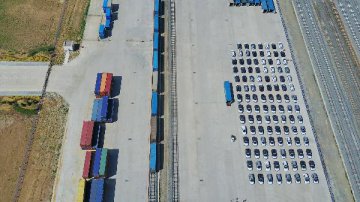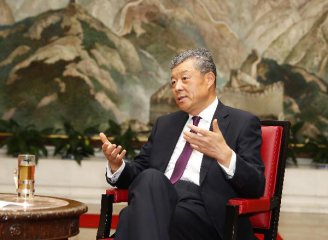WASHINGTON, June 18 (Xinhua) -- "Deeper policy reforms" of the China-proposed Belt and Road Initiative (BRI) will help the mechanism boost trade among nations in the region and increase global real income, a study published Tuesday by the World Bank has found.
Such reforms should be designed to "increase transparency, expand trade, improve debt sustainability, and mitigate environmental, social, and corruption risks," said the study done by a team of World Bank economists led by Michele Ruta, lead economist in the macroeconomics, trade and investment global practice of the World Bank Group.
If those reform measures are fully implemented, the BRI could increase global trade by up to 6.2 percent, and up to 9.7 percent for what the study referred to as "corridor economies" -- a group of 71 economies, most of which signed collaboration agreements with China under the BRI framework.
Through lowering trade costs, the initiative could lift 32 million people -- those who live on less than 3.2 U.S. dollars a day -- out of moderate poverty, the study said.
Global income could increase by as much as 2.9 percent, and foreign direct investment (FDI) for low-income corridor economies could rise by as much as 7.6 percent, according to the study.
Right now, trade in corridor economies is estimated to be 30 percent below potential, and 70 percent of FDI in those economies has yet to be fully tapped, the study said.
"Real incomes for corridor economies could be an estimated two to four times larger if they implement reforms to reduce border delays and ease trade restrictions," it added.
Ceyla Pazarbasioglu, the World Bank's vice president for equitable growth, finance, and institutions, called for "ambitious reforms from participating countries" of the BRI so as to ensure its success, said a press release issued by the international financial institution.
"Improvements in data reporting and transparency -- especially around debt -- open government procurement, and adherence to the highest social and environmental standards will help significantly," Pazarbasioglu said.




















Latest comments